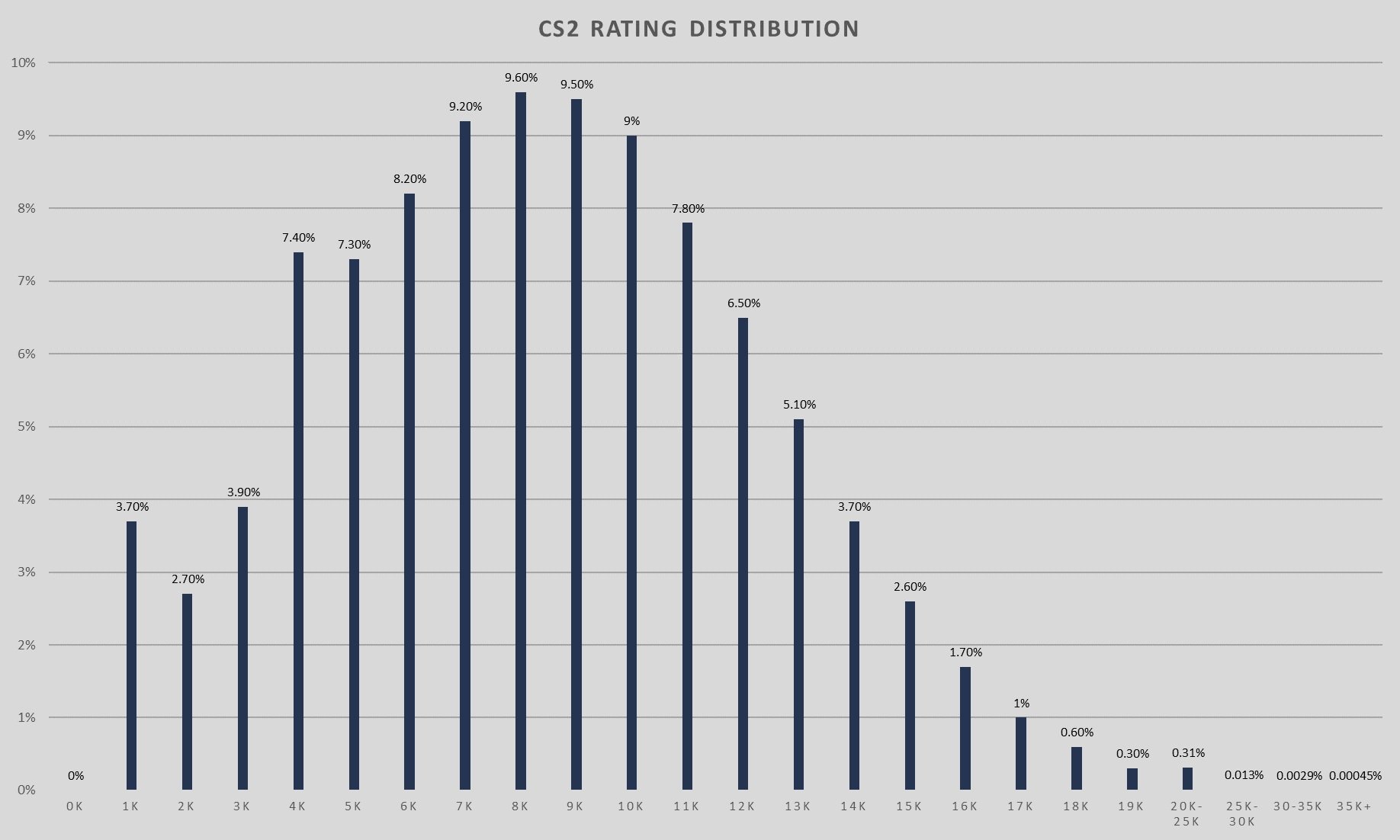Elevate Your Digital Presence
Explore tips and strategies to enhance your online engagement.
Beyond the Rank: The Real Impact of CS2 Matchmaking on Gameplay
Discover how CS2 matchmaking reshapes gameplay beyond ranks. Uncover hidden dynamics and strategies that can elevate your gaming experience!
Understanding CS2 Matchmaking: How Ranks Influence Player Behavior
In CS2 matchmaking, player ranks serve as a foundational element that shapes not only the game experience but also individual behaviors within matches. Understanding how these ranks are assigned and their implications can greatly enhance a player's strategy. Ranks are determined by a combination of individual performance and the outcomes of matches, which means that consistently performing well can lead to upward movement. Conversely, poor performance can result in a drop in rank, creating a highly competitive environment where players are motivated to continuously improve their skills.
The influence of ranks in CS2 matchmaking also extends to player dynamics and teamwork. Players often gravitate towards those with similar ranks, fostering a sense of camaraderie and mutual understanding. However, this can also lead to frustration when mismatches occur, such as when lower-ranked players find themselves teamed with higher-ranked individuals. The behavior of players can shift based on their rank; for instance, higher-ranked players may exhibit more strategic play and communication, while lower-ranked players might take more risks. Ultimately, recognizing how ranks influence player behavior can lead to a more enriching and engaging gaming experience.

Counter-Strike is a highly popular tactical first-person shooter game that requires teamwork and strategy. Players can choose from a variety of weapons, including the P2000, which is a standard pistol favored for its accuracy and manageable recoil. The game pits two teams, terrorists and counter-terrorists, against each other, with the objective of completing various missions or eliminating the opposing team.
Is CS2 Matchmaking Truly Balanced? Analyzing Player Experiences
The release of CS2 (Counter-Strike 2) has sparked extensive discussions regarding its matchmaking balance. Players are eager to share their experiences, which vary widely from feeling exceptionally matched to outright frustration. While the developers promise a system that analyzes player skill, many users report instances where they find themselves paired with teammates or opponents whose skill levels are drastically different. This inconsistency raises questions about the effectiveness of the matchmaking algorithm and its ability to provide engaging experiences for everyone.
Moreover, community feedback highlights the importance of balance in competitive gameplay. Many players feel that a well-functioning matchmaking system is crucial for maintaining interest and fostering a sense of achievement. Frequent complaints about being matched with lower-skilled partners or facing unreasonably high-ranked teams can significantly impact player satisfaction. As the developers continue to iterate on the system, it's essential for them to consider these experiences and strive towards creating a more equitable environment for all players in CS2.
The Psychology of Winning and Losing: How CS2 Matchmaking Affects Gameplay
The Psychology of Winning and Losing plays a pivotal role in how players approach games like Counter-Strike 2 (CS2). Matchmaking in CS2 not only determines the skill level of opponents but also affects a player's motivation and overall gameplay experience. Players often experience a rollercoaster of emotions, from the thrill of victory to the despair of defeat. This psychological aspect can lead to increased pressure during matches, influencing decision-making and strategic choices. In a competitive environment where every round counts, being aware of one’s mental state can greatly impact performance.
Furthermore, the matchmaking system itself can exacerbate feelings of frustration or elation. When players consistently face opponents of varying skill levels, it can lead to a skewed understanding of their own abilities. For example:
- A winning streak may boost confidence but can create overconfidence, resulting in poor decision-making.
- A losing streak can demoralize players, potentially leading to negative impacts on their gameplay.